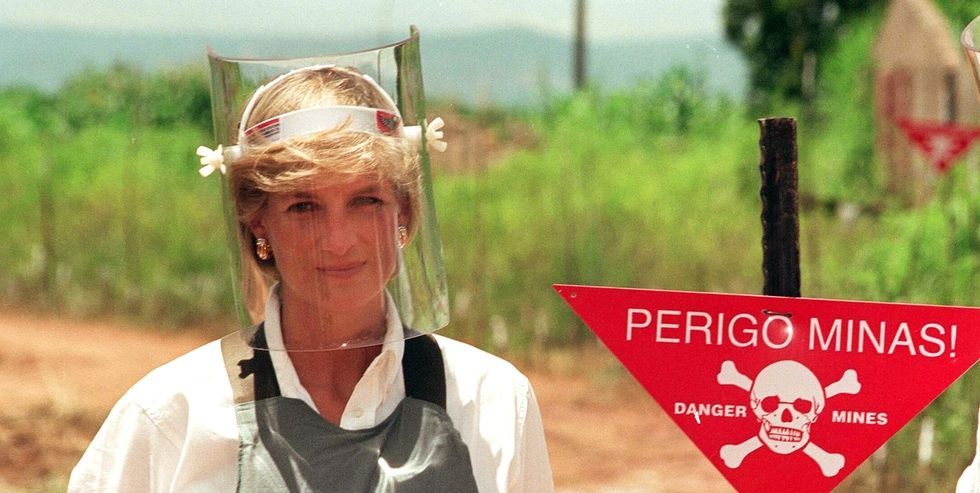
15% of the world’s population has a disability. According to the Return on Disability Group, this consumer population is bigger than China and accounts for $1.9 trillion in disposable income. That makes me wonder why banks and companies don’t focus upon them more.
Interestingly, seeing the Paralympics coming up, disabilities like losing a leg are not necessarily making you invisible, except it does. I get the impression that most companies around the world see people with disabilities as being lesser. They’re not. Often, they’re morer. In fact, I dislike the term disability. I prefer to think of it as different abilities.
For example, one of the superheroes in the Marvel Universe is Matt Murdoch, a lawyer who is blind. Does it make him less? No! It makes him more because his other senses, particularly his hearing, is exceptional. In a similar vein, I have two great friends who are climbers: David Lim and Mark Inglis. They are people I’ve met through the conference network. They are both motivational speakers but, more than that, they are men that I respect.
David Lim led the first Singapore Mount Everest Expedition in 1998. Bearing in mind Singapore is a tiny island with no major mountains, that was quite a feat! However, a week after his return, and unrelated to the climb, David was stricken with Guillain-Barré Syndrome, a rare nerve disorder where the immune system attacks the peripheral nerves. Paralysed from the eyes down, he spent six months in hospital and emerged partially disabled in both legs. Despite it all, he returned to mountaineering and, since 1999, has led more than 15 expeditions as well as writing many best-selling books.
Mark Inglis was climbing with his mate Philip Doole in 1982 and encountered a terrible storm that was not forecast. They ended up being stuck in a snow cave for almost two weeks, hiding from the storm with no food and no real protection from it. That resulted in both climbers losing their legs due to frostbite. Since then, Mark has not only become a Paralympian champion but also one of the first double amputees to climb Mount Everest in 2006.
I am humbled by both of them and by all Paralympians.
Thing is, what they prove to me, is that disability does not mean less ability. It means different abilities.
However, in practical terms, how do we deal with people with different abilities? Bearing in mind they are 15% of the population and a near $2 trillion market, do we deal with people with different abilities effectively?
I’m not sure we do, but the World Economic Forum offers three practical proposals for doing things better.
First, embed inclusivity in technology, for example using AI to help describe the surroundings for people who are visually impaired.
Second, design for accessibility in everything you do. For example, Gojek, an Indonesian unicorn providing services to 38 million users across Southeast Asia, last year began designing a more accessible app experience for users with disabilities, exploring functionalities such as adjusting the screen reader, colour contrast, and more.
Third, invest in assistive technology. For example, the VenusArm – ventured by young people and supported by UNICEF and Generation Unlimited – uses 3D printing to produce bionic prosthetics, and has brought the cost down to 1/30 of an artificial arm. These arms can also ‘’grow with children’’.
In fact, it is interesting on this last point that Mark Inglis has created a company that produces prosthetic leg extensions for around USD$50 each. This is making a huge difference in Africa and other continents. The reason I pick on Africa is that this is a continent that has faced many issues with land mine warfare. Some of you may even remember Princess Diana visiting the region years ago on this specific issue.
In fact, a charity I’ve been actively supporting is MAG, the Mines Advisory Group. Since 1989, MAG has been finding and destroying landmines, clustering munitions and unexploded bombs in places affected by conflict. Since 1989, MAG has helped over 19 million people in 68 countries rebuild their lives and livelihoods after war. Often these are people who have lost limbs for the obvious reasons. Thankfully Mark and David's view of the world helps such people rebuild their lives too.
Anyways, I have my eyes opened to the fact that 15% of the world’s population who have almost $2 trillion of disposable income are often over-looked, because they are seen as lesser. They’re not. Most of them are morer, and good luck to all the Paralympians taking part in this year’s Olympics.
Chris M Skinner
Chris Skinner is best known as an independent commentator on the financial markets through his blog, TheFinanser.com, as author of the bestselling book Digital Bank, and Chair of the European networking forum the Financial Services Club. He has been voted one of the most influential people in banking by The Financial Brand (as well as one of the best blogs), a FinTech Titan (Next Bank), one of the Fintech Leaders you need to follow (City AM, Deluxe and Jax Finance), as well as one of the Top 40 most influential people in financial technology by the Wall Street Journal's Financial News. To learn more click here...


